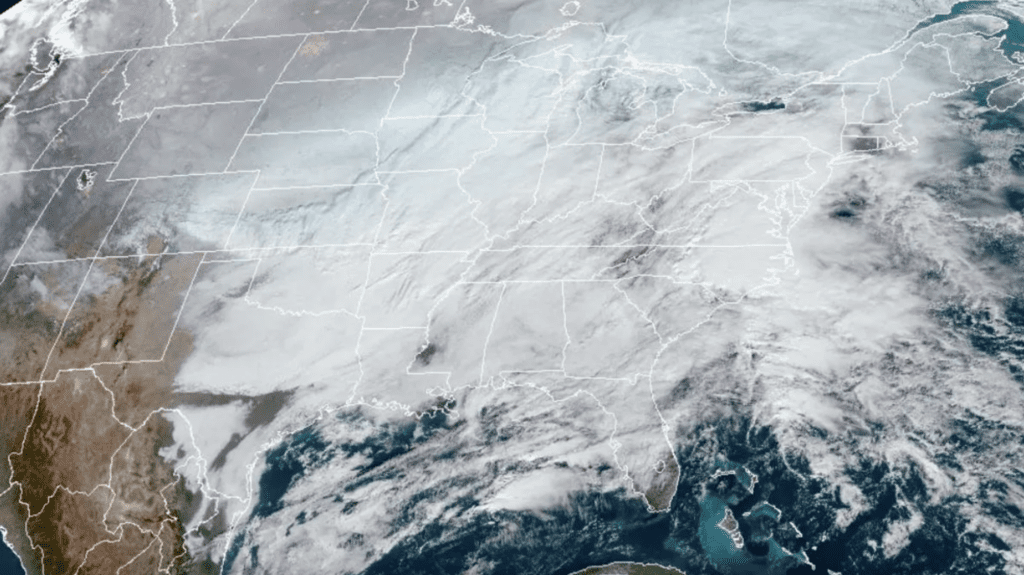
As of Dec. 21, Southwest Airlines announced that it was intentionally reducing operations in Denver and Chicago due to weather. (Photo: NOAA/NESDIS/STAR/GOES-EAST)
Widespread cancellations on Southwest Airlines between Dec. 20 and Dec. 26 disrupted over 12,000 flights and affected thousands of passengers over the Christmas holiday week.
On Dec. 20, Southwest released a travel advisory, forecasting the impact of Winter Storm Elliott and allowing passengers to voluntarily change travel plans within 14 days of the original departure date. The airline, well-known for never charging change fees, also stated that they would be waiving any applicable fare differences caused by the rebookings.
As of Dec. 21, the airline announced it was intentionally reducing operations in Denver and Chicago due to weather and canceled about 500 flights in an effort to keep passengers and personnel safe. The company cited challenging working and travel conditions and the desire to limit exposure to cold temperatures and unsafe conditions.
These cancellations and reshuffling of personnel caused even more delays, exacerbated by long wait times caused by the airline’s outdated scheduling system. The system became overloaded with the changes and caused widespread delays as passengers had to wait for the airline to manually reassign flights. Southwest’s system has been flagged internally in the past, as other airlines have modernized and moved to incorporate cloud-based platforms.
On Dec. 26, the airline announced it would intentionally reduce service by one-third for the subsequent days in an effort to re-stabilize after the widespread disruption. Normal operations resumed on Dec. 30 but flights were still reduced, with some delayed through Jan. 2.

“Our Leadership team is focused on a thorough review of the disruption with all the needed resources involved, and I expect that work to be completed swiftly. We’ve already taken immediate actions to mitigate the risk of this ever happening again, and the review work will inform additional actions and investment as well.” – CEO Bob Jordan (Photo: Boeing)
The airline issued 25,000 Rapid Rewards points (equivalent to about $300) to passengers whose flights were canceled or significantly delayed during the Dec. 24 – Jan. 2 window. The airline is still working through a backlog of misplaced luggage and has engaged with FedEx to help return lost bags.
The news spread across social media like wildfire with stories of multiple-hour delays and thousands of lost items.
CEO Bob Jordan issued a statement in the aftermath, promising a redoubling of efforts to invest resources to improve Southwest’s internal technology. He acknowledged that the airline has work to do and promised immediate work to understand what happened. He also added in an interview with “Good Morning America” that the company will be “taking care of things like rental cars, hotel rooms, meals, booking customers on other airlines, so that will all be part of what we’re covering here as we reimburse our customers.”
A Bank of America study estimates that the delays and cancellations over the holidays will cost Southwest Airlines between $600 million and $700 million.